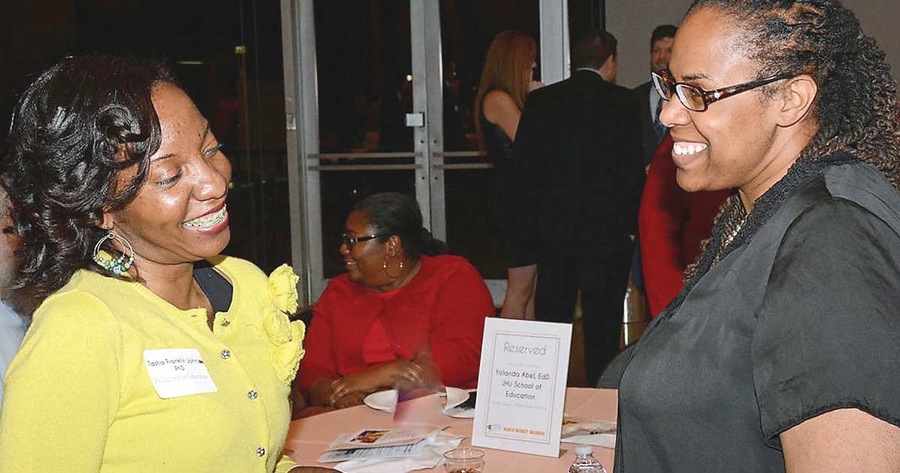She would know: She's spent the past 18 years working in education in some facet in cities including Dallas, Baltimore, and Washington D.C.—whether as an elementary teacher, an administrator, or a senior executive in large urban districts.
Franklin Johnson, who works in the out-of-school-time realm, proudly serves as an NAA Board Member, and describes herself as a "classically, alternatively certified classroom teacher," notes that mentoring has been a tremendous factor in her career development.
"I think NAA did a great job this year of closing the gaps of afterschool leaders of color and the importance of mentoring in the space," said Franklin Johnson. "I can say personally that having people who have similar challenges in terms of their career pathway—barriers as a female, barriers as a person of color—helped me to anticipate and find ways to navigate around those challenges."
As a pedagogue, Franklin Johnson says, getting to see, hear, and experience what excellence looks and sounds like is important.
"Mentoring and being coached by the right coach were hugely impactful in the successes I've had in my career—both to provide examples and non-examples," said Franklin Johnson, noting part of the work she does with YMCA is about training and practicing with intentional behaviors, attitude shifts, and expert skills within five adult practices: empathy, emotion management, personal development, relationship building, and responsibility.
"We do a lot of 'I do, you do, we do'—the notion that we are leading the way and co-construct with local affiliates to build on existing knowledge to build new knowledge, which is then expected to be transferred and translated."
There's a level of support, but also a level of accountability, which Franklin Johnson adds is characteristic of the Mentoring and Coaching Paradigm.
Ultimately, she stresses, it's important to remember that mentoring is a co-partnership.
"It's not always the mentor or coach sitting in the chair as the expert—your mentee at different times, too, is an expert in his or her lived experience," said Franklin Johnson. "Being able to access what the mentee does well and to also create a relationship where you can provide critical feedback is essential."
Franklin Johnson has found this approach helpful for her to grow, learn, and do and be better in the ways she supports teaching and learning in general, and specifically when working with others in the afterschool field.
Written by Sarah Suydam, Staff Writer for AfterSchool Today.
This article originally appeared in the Summer 2020 issue of AfterSchool Today.

